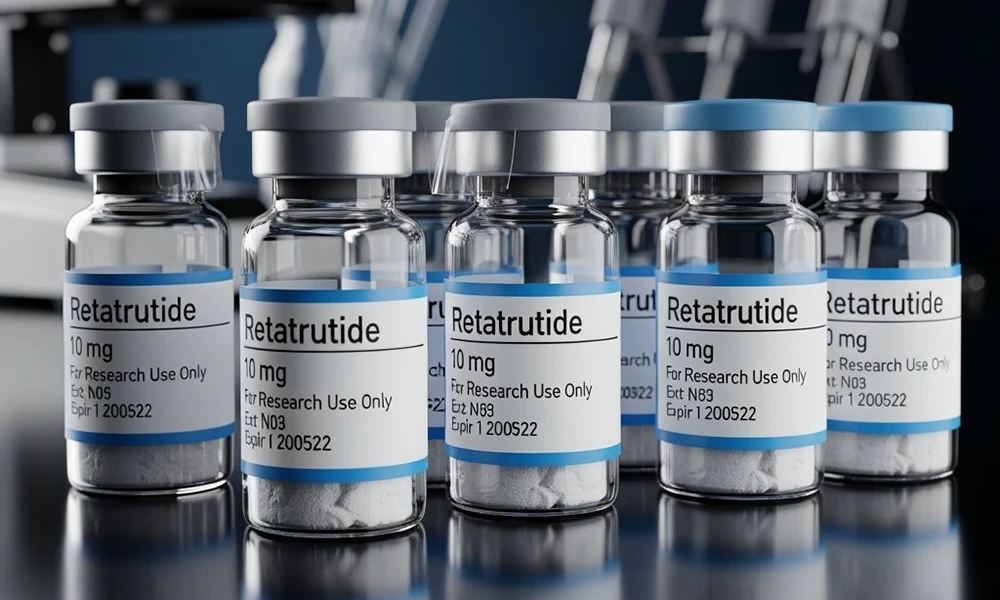Key Takeaways
- Emerging research suggests that GLP-1 medications, primarily used for weight loss and diabetes, may also help reduce the risk of dementia by improving brain cell function and reducing inflammation.
- Since obesity and type 2 diabetes are known risk factors for cognitive decline, GLP-1 drugs could offer dual benefits—managing these conditions and potentially protecting against dementia.
- While animal studies and small clinical trials show promise, large-scale human studies are still required to confirm GLP-1’s effectiveness in preventing or slowing dementia.
- Currently, these medications are not approved specifically to treat or prevent Alzheimer’s or other forms of dementia, though ongoing studies are exploring this possibility.
Recent medical breakthroughs have revealed an unexpected ally in the fight against alzheimer’s disease: weight loss drugs originally designed for diabetes and obesity management. Groundbreaking research published in 2024 shows that popular weight loss drugs like semaglutide (Ozempic, Wegovy) may reduce dementia risk by an astounding 40-70%, opening new frontiers in brain health protection.
This remarkable discovery stems from extensive analysis of clinical trials and real-world patient data, suggesting that the same medications helping millions lose weight and manage diabetes could also protect against cognitive decline. For the millions of Americans at risk for both metabolic disorders and dementia, this represents a potentially game-changing development in preventive medicine.
Breaking Research: Weight Loss Drugs Show Promise Against Dementia
The connection between weight loss drug dementia protection emerged from two pivotal studies published in the journal jama neurology in early 2024. These comprehensive investigations analyzed data from multiple sources, revealing consistent patterns of reduced risk among users of GLP-1 receptor agonists.
The first major finding came from a meta analysis of 26 clinical trials involving over 160,000 participants. While these studies weren’t originally designed to examine dementia outcomes, researchers discovered a clear trend toward lower cognitive impairment rates among patients taking these diabetes medications.
Even more compelling evidence emerged from a massive real-world analysis examining more than 2 million diabetic patients, including over 215,000 individuals prescribed glp 1 medications. The team found that semaglutide users experienced between a 40% and 70% reduction in alzheimer’s risk compared to those receiving insulin or other diabetes treatments.
Specific research highlights include:
- 70% lower risk of alzheimer disease when comparing semaglutide directly to insulin
- 40% reduction in dementia risk versus other GLP-1 drugs
- Consistent protective effect across multiple patient populations
- Timeline spanning 2023-2024 for major research developments
These findings represent some of the most significant advances in dementia prevention research in the past decade ago, with further research continuing to validate these protective effects.
Understanding GLP-1 Drugs and Their Dual Benefits
GLP-1 receptor agonists represent a revolutionary class of diabetes medications that have transformed both metabolic health management and weight loss treatment. These drugs work by mimicking the natural hormone glucagon like peptide receptor, which regulates blood sugar, reduces food intake, and slows digestion.
The major medications in this category include:
| Medication | Brand Names | FDA Approval Timeline | Primary Uses |
|---|---|---|---|
| Liraglutide | Victoza, Saxenda | 2010 (diabetes), 2014 (weight loss) | Type 2 diabetes, chronic weight management |
| Semaglutide | Ozempic, Wegovy | 2017 (diabetes), 2021 (weight loss) | Type 2 diabetes, obesity treatment |
| Tirzepatide | Mounjaro | 2022 (diabetes) | Type 2 diabetes, weight management |
The active ingredient in these medications crosses the blood-brain barrier, allowing direct interaction with neural tissue. This unique property enables the drugs to influence not only metabolic processes but also brain function, appetite regulation, and potentially neuroprotection.
Since the first GLP-1 analogs received approval in 2005, these medications have demonstrated remarkable versatility. What began as diabetes treatments has evolved into comprehensive therapies addressing multiple chronic diseases, with emerging evidence suggesting benefits for heart disease, kidney disease, and now cognitive function.
The Science Behind Brain Protection
The underlying mechanism by which weight loss drugs provide brain benefits involves several interconnected pathways that address key risk factors for cognitive decline. researchers have identified multiple ways these medications may prevent alzheimer’s disease and reduce brain shrinkage.
Anti-Inflammatory Effects and Reducing Inflammation
Chronic inflammation represents a major contributor to neurodegeneration. GLP-1 medications demonstrate powerful anti-inflammatory properties that may protect the brain’s nerve cells communicate effectively. By lowering systemic inflammation throughout the body, these drugs potentially counteract one of the primary drivers of dementia development.
Lowering Insulin Resistance
Insulin resistance in the brain has earned alzheimer’s the nickname “type 3 diabetes.” People with diabetes and obesity face significantly increased risk of cognitive impairment due to impaired insulin signaling in neural tissue. GLP-1 receptor agonists improve insulin sensitivity, potentially restoring normal brain metabolism and protecting cognitive function.
Protecting Blood Vessels
High blood pressure, diabetes, and obesity all contribute to blood vessel damage that impairs cerebral blood flow. When blood vessels in the brain become damaged, they cannot deliver adequate oxygen and nutrients to neural tissue. GLP-1 drugs help protect these critical blood vessels, maintaining healthy brain volume and function.
Preserving Neural Communication
Clinical evidence suggests these medications help preserve the connections that control memory and learning. By protecting synaptic function and reducing toxic effects of metabolic dysfunction, GLP-1 drugs may maintain the neural networks essential for cognitive health.
The protective effect appears strongest in individuals with existing risk factor profiles, particularly those with diabetes and weight loss challenges who face elevated dementia risk from multiple sources.
Clinical Trial Results and Real-World Data
The most compelling evidence for weight loss drug dementia protection comes from rigorous clinical trials and large-scale patient databases. These studies provide concrete data on how effectively these medications reduce cognitive decline and preserve brain health.
Liraglutide Clinical Trial Outcomes
A landmark double blind study examining liraglutide in alzheimer’s patients produced remarkable results. Over 18 months, participants were divided into two groups – half received the active medication while the other half received placebo treatment. The findings revealed:
- 50% reduction in brain shrinkage compared to placebo
- 18% slower rate of cognitive decline
- Preserved hippocampal volume critical for memory formation
- Maintained neural connectivity in regions that control memory
Semaglutide Real-World Evidence
Analysis of millions of patient records has provided unprecedented insight into semaglutide’s brain benefits. The systematic review of diabetes and obesity patients prescribed this medication revealed:
- 70% lower alzheimer’s risk versus insulin users
- 40% reduced risk compared to other GLP-1 medications
- Consistent protective benefits across various stages of metabolic disease
- Significant reduction in progression to severe cognitive impairment
Comparative Effectiveness Data
When researchers compared different anti diabetic drugs, GLP-1 medications consistently demonstrated superior neuroprotective effects. The new research indicates these drugs outperform traditional diabetes treatments in preventing cognitive decline, with semaglutide showing the strongest protective effects.
Studies spanning multiple year compared outcomes have confirmed that patients taking these medications maintain better cognitive function over time, with some individuals showing measurable improvements in memory and executive function.
Current Limitations and Ongoing Research
Despite promising results, several important limitations must be considered when evaluating weight loss drug dementia prevention. The scientific community emphasizes the need for additional research to establish definitive causality and optimal treatment protocols.
Study Design Limitations
Most existing evidence comes from studies not originally designed to examine dementia outcomes. While the data is compelling, researchers acknowledge that dedicated alzheimer’s prevention trials are needed to confirm these protective effects definitively.
Medication Adherence Challenges
Real-world data reveals significant challenges with long-term medication use. Studies show that up to 50% of patients discontinue GLP-1 therapies within 12 weeks due to:
- Side effects including nausea, vomiting, and gastrointestinal distress
- Cost barriers limiting access to these expensive medications
- Injection requirements creating adherence difficulties
- Insurance coverage limitations for off-label cognitive protection
Ongoing Clinical Trials
pharmaceutical company novo nordisk is currently conducting dedicated clinical trials examining semaglutide’s effects on alzheimer’s prevention. These prospective studies will provide definitive evidence about whether these medications can prevent or slow cognitive decline in high-risk populations.
Additional research initiatives from institutions like imperial college london are investigating optimal dosing, treatment duration, and patient selection criteria for maximizing brain benefits while minimizing adverse effects.
Safety Considerations
While generally well-tolerated, GLP-1 medications can cause serious side effects in some patients, including pancreatitis and kidney disease complications. These risks must be carefully weighed against potential cognitive benefits, particularly in older adults who may be more vulnerable to adverse effects.
Future Implications for Dementia Prevention
The emergence of weight loss drug dementia protection represents a potential paradigm shift in how medicine approaches cognitive health. As the seventh leading cause of death nationally, alzheimer’s disease affects millions of families, making effective prevention strategies a critical public health priority.
Integration with Existing Alzheimer’s Strategies
Current dementia prevention focuses primarily on lifestyle interventions like exercise, diet, and social engagement. GLP-1 medications could complement these approaches by addressing metabolic risk factors that traditional strategies cannot fully control. This makes sense given the strong connections between diabetes, obesity, and cognitive decline.
Off-Label Prescribing Considerations
Some healthcare providers are already discussing GLP-1 therapy with patients at high risk for both metabolic disease and dementia. While formal guidelines haven’t yet incorporated cognitive protection into prescribing recommendations, the growing evidence base is influencing clinical decision-making.
Expert consensus suggests prioritizing these medications for people prescribed other diabetes treatments who also have:
- Family history of alzheimer’s disease
- Multiple cardiovascular risk factors
- Existing mild cognitive impairment
- Metabolic syndrome or insulin resistance
Timeline for Formal Approval
The national institute of aging and other research organizations are closely monitoring ongoing trials. If current studies confirm the protective effects seen in retrospective analyses, formal FDA approval for dementia prevention could occur within the next 2-5 years.
This timeline could accelerate if ongoing novo nordisk trials demonstrate clear cognitive benefits in carefully controlled studies designed specifically to measure dementia outcomes.
Patient Considerations and Next Steps
For individuals considering GLP-1 therapy for potential brain benefits, several factors should guide decision-making. The current evidence strongly supports these medications for people with existing diabetes and weight loss needs who also face elevated dementia risk.
Ideal Candidates for Treatment
Patients most likely to benefit from weight loss drug dementia protection include those with:
- Type 2 diabetes requiring medication management
- Obesity with BMI over 30 or overweight with comorbidities
- Strong family history of alzheimer’s disease
- Multiple metabolic risk factors including high blood pressure
- Ability to tolerate injection-based medications
- Insurance coverage or financial resources for long-term treatment
Healthcare Provider Discussions
When consulting with medical professionals about these medications, patients should discuss:
- Individual risk factor assessment for both metabolic disease and dementia
- Current medication regimens and potential interactions
- Cost considerations and insurance coverage options
- Monitoring protocols for both metabolic and cognitive outcomes
- Realistic expectations about brain benefits based on current evidence
Risk-Benefit Analysis
Healthcare providers must carefully weigh the established benefits for diabetes and weight loss against the emerging evidence for cognitive protection. For many patients with diabetes and obesity, the potential brain benefits represent an additional reason to consider these already-indicated treatments.
The protective effect appears most robust in individuals with existing metabolic dysfunction, suggesting these medications work best as part of comprehensive chronic disease management rather than purely preventive therapy in healthy individuals.
Monitoring and Follow-Up
Patients starting GLP-1 therapy should expect regular monitoring of:
- Blood sugar control and diabetes management
- Weight loss progress and metabolic improvements
- Cognitive function through periodic assessments
- Side effects and medication tolerance
- Cardiovascular health and other chronic disease markers
Future research will likely establish more specific protocols for monitoring cognitive outcomes in patients receiving these medications for brain health protection.
Conclusion
The discovery that weight loss drugs may significantly reduce dementia risk represents one of the most exciting developments in alzheimer’s research in recent years. With semaglutide and other GLP-1 medications showing 40-70% reductions in cognitive decline risk, these findings offer new hope for the millions of Americans facing increased risk due to diabetes and obesity.
While further research is needed to establish definitive causality and optimal treatment protocols, the current evidence strongly suggests these medications provide meaningful brain benefits beyond their established metabolic effects. For patients already candidates for GLP-1 therapy due to diabetes or weight management needs, the potential cognitive protection represents a compelling additional benefit.
As ongoing clinical trials continue to investigate these promising findings, individuals concerned about dementia risk should discuss their options with healthcare providers. The intersection of metabolic health and cognitive function creates opportunities for comprehensive prevention strategies that address multiple aspects of healthy aging.
The future of dementia prevention may well include these remarkable medications that began as diabetes treatments but have evolved into potential guardians of brain health. As research progresses, weight loss drug dementia protection could become a cornerstone of preventive neurology for those at highest risk.
Shop our GLP-1 Support Patches
Frequently Asked Questions
Meet the Author

Bradley Keys
Bradley Keys is an accomplished writer who has covered a wide variety of health, nutrition, and wellness topics. He graduated with a Bachelor of Science from Florida State University, and has extensively explored a diverse range of subjects within the realms of health, wellness, and nutritional supplementation, showcasing a broad and in-depth understanding of these interconnected fields.
Reviewed by :

Dr. Majid Sabour
Dr. Majid Sabour, MD, is a renowned expert in medical weight loss and the founder and medical director of Gent's Doctor clinic in Beverly Hills, California. With over 25 years of experience, Dr. Sabour is board-certified in family medicine and specializes in helping patients achieve their weight loss goals through personalized medical treatments. He graduated from Zaporizhzhia State Medical University in Ukraine and completed a family medicine residency program with Columbia University and Cornell at New York-Presbyterian Hospital in Manhattan. Licensed in both New York and California, Dr. Sabour is dedicated to providing comprehensive weight loss solutions that promote overall health and well-being.

















